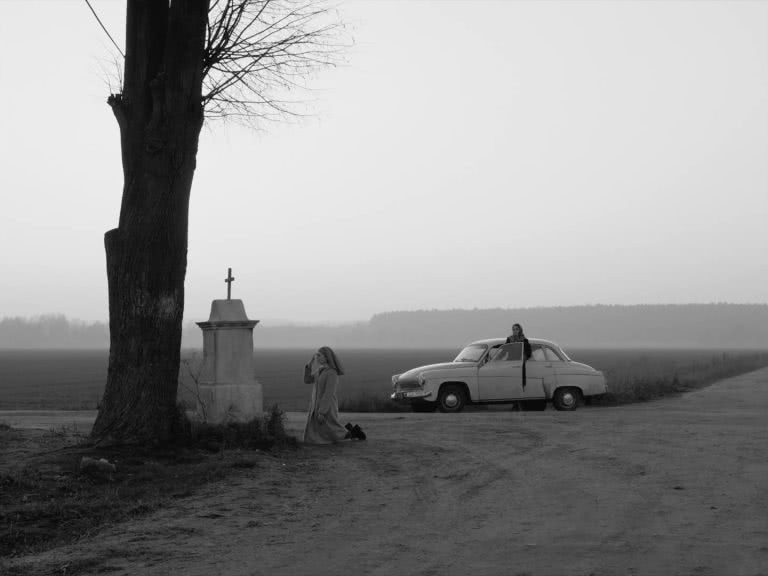Perhaps the worst thing I can say about Pawel Pawlikowski’s Ida is that it can be too exquisite.
Shot in gorgeously austere monochrome black-and-white in the old-fashioned 4:3 aspect ratio, it occasionally runs the risk of self-parody, evoking the way that perfume commercials opportunistically crib from the aesthetics of European art cinema (chiefly Carl Dreyer), or worse, Barney Gumble’s Pukahontas. Still, it’s only a theoretical flaw in this context; over the course of Ida’s svelte 80-minute duration, form matches content every step of the way, telling the story of two women in 1960s Poland as each bears the burden of WWII’s aftermath differently.
In the case of young nun Anna (played with transfixing opacity by non-pro newcomer Agata Trzebuchowska), it’s the discovery of her real identity: that she’s Jewish (born Ida Liebenstein), and that her parents were murdered during the war. In the case of Anna’s estranged aunt Wanda (Agata Kulesza), it’s the confrontation of her own suppressed past as a Communist prosecutor. Pawlikowski’s main formal strategy is to isolate his characters at the bottom of the frame, and as Wanda takes Anna on a journey to reconcile with each of their pasts, the enveloping space has the effect of both literalising the way history weighs upon them, as well as suggesting a world of possibility and potential that lies beyond.
Ida remains nothing less than deeply empathetic throughout, avoiding grand statements about its historical moment and instead etching a sensual world with astonishing specificity. “This is so Róza. Stained glass next to cow shit,” Wanda deadpans when encountering her sister’s barn; a remark that encapsulates the film’s juxtaposition of the sacred and profane, and portends Anna’s own brush with earthly temptation. It’s possible that a little more cow shit and a little less stained glass in the film’s palette wouldn’t have lessened its impact, but Ida remains a perfect miniature, anyhow; fleet, droll, moving, and one of the year’s best films.
4.5/5 stars
Ida opens in cinemas Thursday May 22.


































